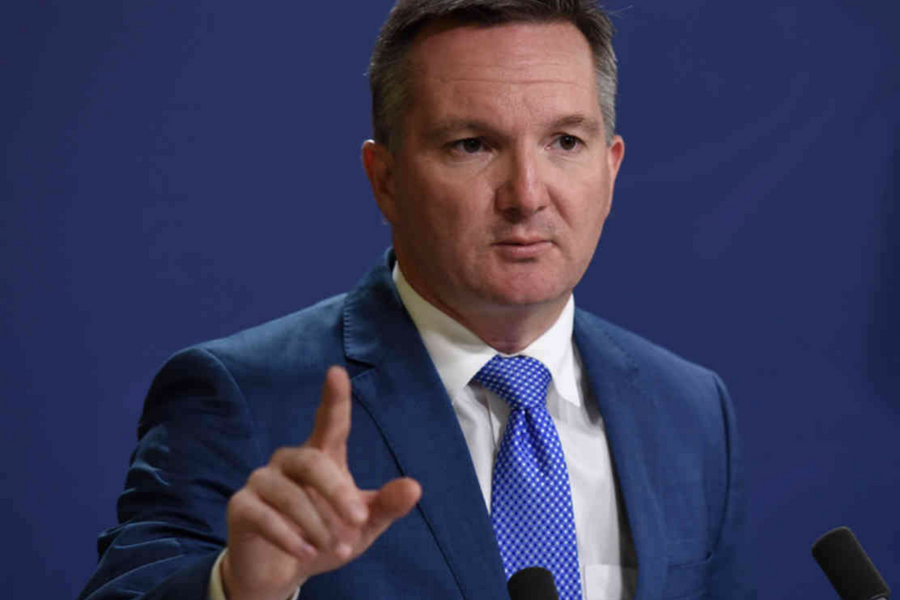Shadow Treasurer Chris Bowen delivered a scathing assessment of the government’s innovation efforts at Sydney fintech hub Stone and Chalk today as he pleaded Labor’s own “case for innovation”.
Flanked by Ed Husic, shadow minister for the digital economy and the future of work, Bowen reminded the audience that at this time last year, “every politician and their cavoodle were singing the praises of an agile, innovative economy”, with Australia basking in “five minutes of innovation sunshine”.
Though the rollout of the National Innovation and Science Agenda has continued, with the government also passing its equity crowdfunding legislation and highlighting its support for fintech, the ideas boom talk has largely died down, while the appointment of a third Minister for Innovation in a year hasn’t helped push the message that the innovation agenda is the government’s focus.
For Bowen, the inability to explain why innovation is important to Australia’s economic future is in itself an economic problem.
Labor’s efforts, Bowen stated, are focused on boosting understanding of innovation and drawing more Australians into the conversation as concerns about automation and the future of work continue to grow.
“Where we stand now, we don’t have time to lose: it’s crucial the innovation agenda is made relevant to people worried about their – and their nation’s – economic future,” he said.
“It’s about existing firms as well as new ones. It’s about manufacturing as well as services. It’s about rural and regional Australia just as much as it is about cities.”
Describing Labor as “the party born to advance the quality of life for working Australians”, Bowen believes innovation can help lift living standards, “which is what we’re all about”.
The challenge, however, is communicating the message while accepting that innovation will rapidly change the nature of work; new data released today from analytics firm Faethm estimate between 30 and 40 percent of jobs in financial services becoming automated, with particular concern around second-tier players, while 50 percent of existing manufacturing jobs could be affected and 60 percent of fast food jobs may be automated.
Husic has regularly made this point over the last year; in a campaign debate with Angus Taylor, Assistant Minister for Cities and Digital Transformation, he said more had to be done to explain to the broader community what it meant to champion innovation.
“We’re all excited about it, but people in the broader community aren’t; I represent an electorate 40km away from here, and if I went and had this debate in the Mt Druitt library, I don’t think many people would get what we’re talking about,” Husic explained.
“Them not getting what we’re talking about is bad news for all of us. A lot of those people think that what we argue for is a job killer. They think that tech rips away jobs, and where do they go next?”
Believing an “evidence war” is crucial to properly showcase the need for innovation, Bowen pointed to evidence of jobs created through technology; a 2011 McKinsey study found that for every job lost in France due to the internet over the previous 15 years, 2.4 new jobs had been created.
“Where new technology frontiers have been achieved, it’s tended to result in job losses, but also job gains,” he said.
A Labor Government, Bowen said, will have the Productivity Commission produce regular reports on how trade reforms, coupled with new tech developments and automation, benefit all Australians, and here he made a point to highlight inclusion.
“An innovation effort made up of people of all backgrounds, all regions, and sharing the economic uplift instead of dividing a small number of winners extracting their gains from the many who think they’ve been exploited in the process,” he said.
“And we need to be making women the central focus in every discussion about startups, truly diversifying our nation’s innovation effort, calling up their talent as much as possible. And when this community, the startup community, focuses on bringing people along with it and opening up opportunity, it’s inspiring.”
The need to bring regional Australia into the conversation was also highlighted, with Bowen reiterating policy Labor took to last year’s election to establish a Regional Innovation Fund and create 20 new accelerators through regional partnerships.
“We’re seeing the emergence of a sharper regional focus from within the startup community; it’s evidenced through initiatives like Silicon Paddock through to what we’re seeing at Runway Geelong,” he said.
However, Bowen said Labor’s approach to innovation will see government and innovators working together to build understanding and trust through sustained commitment and partnership, and that the party will be developing further policy in the area to take to the next election.
With many also equating idea of innovation with the erosion of working conditions, Bowen made a note to highlight the agreement signed by Unions NSW and Airtasker earlier this week, saying it “underlines the potential of collaboration between entrepreneurs and unions to achieve outcomes which promote a better society”.
The speech comes a few days after Opposition Leader Bill Shorten announced in a pre-budget address to the McKell Institute that a Labor Government would create a ‘SMART’ visa to bring to Australia the best and brightest in the fields of science, medicine, academia, research, and technology.
Labor would also create a new, independent labour market testing body to determine what skills Australia needs and in turn advise the government on skills shortages and future skills needs.
Image: Chris Bowen. Source: Sky News.




















Trending
Daily startup news and insights, delivered to your inbox.